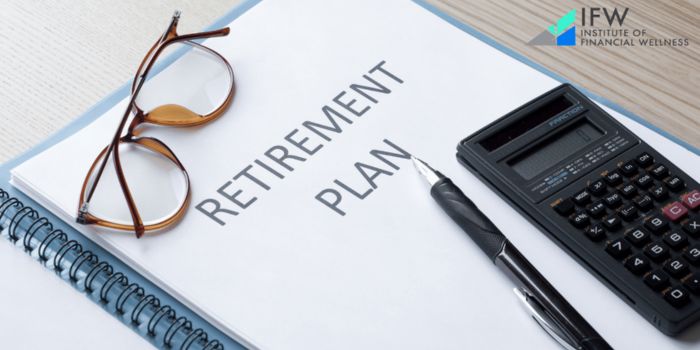Are you prepared for a comfortable and secure retirement? No matter your current stage in life, it’s never too early or too late to start planning for your golden years. Let’s analyze the top 5 retirement planning mistakes to avoid, effective strategies for saving, and navigating the complexities of Social Security benefits. Continue reading to arm yourself with the knowledge necessary to make well-informed decisions and achieve your retirement goals. And sign up for our free retirement planning webinar to learn more!
Key Takeaways
- Start retirement planning early and take advantage of employer-matching contributions.
- Plan for healthcare costs in retirement and diversify investments to reduce risk.
- Utilize tax-advantaged accounts, understand Social Security benefits, find a qualified financial advisor, create an emergency fund & explore insurance options for unexpected expenses.
Avoiding Common Retirement Planning Mistakes: Retirement Planning Advice

Creating a well-thought-out retirement plan is essential for future financial stability. Many individuals can make missteps that disrupt their progress and threaten to prevent them from realizing their desired retirement outcomes. Recognizing these pitfalls in advance helps you take the necessary steps toward achieving your objectives so you are able to enjoy an affirming post-career life with no fiscal worries.
So, what are some possible retirement planning mistakes? We can mention procrastinating savings accumulation, disregarding employer matching contributions when available, and underestimating healthcare costs associated with aging concerns such as long-term care expenses or chronic medical conditions like diabetes, etc.
By addressing each of these issues directly prior to launching into full-scale financial planning options, you have already taken one step towards attaining comfort after formally retiring – quite simply meeting goals faster than had those errors not been averted early on!
Not starting early enough
Beginning your retirement planning early is key to maximizing savings and returns on investments. Starting ahead of schedule provides a longer duration for growth in the retirement account, thus leading to greater gains overall. If you put it off too long, there may be certain lost opportunities, such as not getting employer contributions or being unable to build up an emergency fund.
In this case, seeking advice from a certified financial planner will help ensure that all elements are taken into consideration when determining what kind of investment strategy works best, e.g., taking advantage of tax-advantaged accounts while diversifying investments towards building up one’s portfolio for retirement. This can assist with achieving an optimal return rate so that your finances stand secure through those later years in life.
Overlooking employer-matching contributions
Employer-matching contributions can be an effective way to increase retirement savings, as they provide employees with additional funds for their plans. These are equal to a percentage of the employee’s salary and offer several advantages, such as tax deductions, compounding returns, and improved morale, among other benefits.
It is important to consider that these contributions also affect the Social Security Administration’s programs in terms of being able to maximize associated rewards. Because employer matching contributions may have different taxation implications, it is recommended to consult a qualified tax advisor before making any decisions related to them.
Underestimating healthcare costs
Understanding the potential costs of healthcare in retirement is essential for preparing financially. An average 65-year-old woman may need up to $146,000 just to cover health expenses during this stage of life [1]. To assist with budgeting and saving, it would be beneficial to meet with a financial advisor so they can help devise an appropriate strategy for these types of outlays.
A worthwhile option that should also not be overlooked when looking into ways one could save on medical-related bills is setting aside money through a Health Savings Account (HSA). It allows people various tax advantages while giving them access to funds that are earmarked specifically towards eligible medical payments or services down the road if needed.
Say goodbye to surprises! Addressing such contingencies early helps ensure you won’t experience anything unexpected later, as well as gives individuals more peace of mind regarding their finances come retirement age.
Retirement Strategies and Savings Tips
Retirement savings and planning are essential to enjoying a comfortable lifestyle during retirement. To ensure this, incorporating three strategies into your plan is of great importance: diversifying investments, regularly assessing one’s investment strategy, and utilizing tax-advantaged accounts. These elements can help you reach financial goals while maximizing retirement income.
Let’s dive deep into each of the above-mentioned tools so that an informed decision on their utility in achieving comfort after retiring can be made.
Diversifying investments
A certified financial planner can help you construct a diversified investment portfolio in order to protect your retirement savings. Diversification involves allocating capital across stocks, bonds, and mutual funds, with the goal of reducing risk and preserving value against any sudden market downturns.
This strategy is essential for ensuring optimal growth when it comes to long-term retirement planning as well as achieving specific financial goals outlined by individuals seeking advice from an expert professional.

Regularly reviewing and adjusting investment strategy
Continuous monitoring and modifying your investment plan is advantageous for multiple reasons. Primarily, it allows you to ensure that your approach meets the present market conditions and takes advantage of new possibilities or averts any possible risks. Evaluating if your strategy still corresponds with all of your financial aims can also be done by doing so.
One way to review an investment tactic could be rebalancing a portfolio, which provides one chance to reduce investments that have recently exceeded expectations on the marketplace while raising exposure for those items deemed likely for advancement soon enough as well.
Proactivity combined with consistent analysis of assets is important in maximizing returns while endeavoring towards achieving personal monetary objectives more efficiently than ever before.
Utilizing tax-advantaged accounts
Retirement accounts such as 401(k)s and IRAs are effective instruments for those wishing to save money for retirement in a way that takes advantage of specific tax incentives. With these tax-advantaged savings, individuals can accumulate more assets while paying fewer taxes on their income. This not only ensures additional resources in later years but also reduces overall taxable revenue now.
It is advisable to consult with certified financial advisors when making decisions about the type of account one wishes to open since each offers its own unique advantages and qualifications. Options like Roth IRAs, traditional IRAs, or even 401 (K) all have different characteristics depending upon individual finances, which is why exploring every option available provides the best chance at achieving secure wealth come time for relaxation away from work life.
Navigating Social Security Benefits

It is essential for retirees to have a good grasp of Social Security benefits when it comes to planning their retirement. Understanding the importance of full retirement age and exploring the advantages and drawbacks associated with claiming these benefits sooner or later can make all the difference in achieving an enjoyable and comfortable post-working life.
Ultimately, if you gain extensive knowledge into how Social Security fits into your plan once you retire, then this should contribute significantly towards attaining secure finances throughout those years without work.
Understanding full retirement age
Having an understanding of your full retirement age is critical, as it plays a role in when you can access Social Security benefits and the amount of income received if claiming them ahead of or behind that mark. It’s important to consider all factors associated with one’s unique situation before making any decisions about withdrawing their savings from retirement accounts.
This is why seeking advice from a financial planner may be beneficial for planning accordingly. Acknowledging where you stand on your journey to retiring fully could determine how much overall money will come into play during those later years.
Weighing the pros and cons of early or delayed claiming
Making the decision to claim Social Security benefits early at age 62 may provide an extra income and an earlier disbursement of payments. Be aware that taking them before you reach full retirement age can lead to a cut in overall payments with smaller checks for as long as you receive them.
On the contrary, delaying these same benefits could result in up to 56% more money each month during your senior years- something worth considering if extending your working life is feasible or desirable too! [2]
When choosing when to collect Social Security, it will largely depend on personal financial circumstances, including longevity expectations and existing sources of retirement funds and revenue needs.
The Role of Financial Advisors in Retirement Planning

When preparing for retirement, consulting with financial and legal advisors is essential. Financial professionals can provide guidance on how to avoid the common pitfalls of planning. To create a strategic plan tailored to your needs and objectives. Working together with both experts will make sure that you are provided with an appropriate strategy so you can live comfortably during this phase of life.
It’s important that when choosing who to trust as an advisor, they should be knowledgeable about all aspects involved in securing a sound future like yours: from investments and taxes regarding retirement plans up to estate-planning laws relevant for retirees. Thus providing comprehensive advice that matches what one hopes their long-term goals could look like after leaving working life behind them.
Finding the right financial advisor
Finding the correct financial advisor ensures that advice and guidance are tailored to suit your specific needs. When choosing a financial planner, it is imperative to examine their level of knowledge in the finance industry, how much experience they have working with similar clients, and whether or not you can trust them. Plus, if they act as fiduciaries, meaning always acting in your best interests. Taking these things into consideration means finding someone who can assist properly through retirement planning.
In order to find the right individual for this job, do some research, ask relevant questions about qualifications and references then utilize services like FINRA (Financial Industry Regulatory Authority) & NAPFA (National Association of Personal Financial Advisors). Doing so will help locate an established specialist well-equipped to guide you during the retirement preparation process smoothly and safely.
Collaborating with legal advisors
When approaching retirement, consulting with both financial and legal advisors can be beneficial in creating a comprehensive plan. Working with experts like fee-only estate planning attorneys will ensure that all of the relevant issues regarding your finances are addressed, as well as providing advice about any potential legal complications during the process.
This collaboration ensures assets are appropriately allocated according to one’s wishes while understanding how such decisions may carry various consequences upon retirement. In sum, collaboratively working between different types of professionals is essential for effective retirement planning.
Preparing for Unexpected Expenses in Retirement

Retirement can bring about unanticipated costs, and it is essential to be equipped for them so that one’s financial situation remains secure. This text will present two main approaches that are applicable in addressing these unexpected expenses: creating an emergency fund and analyzing insurance options available.
By being prepared ahead of time through implementing such strategies, you can look forward to retirement with the assurance of having a stable financial footing despite any unforeseen challenges.
Establishing an emergency fund
You never know when an emergency may arise in your life, which is why creating an emergency fund is a great way to plan for unexpected costs during retirement, such as medical bills and home repairs.
Establishing this type of savings involves regularly depositing money into the account from your checking account each month while also investing in low-risk investments that can help it grow over time.
Periodically reviewing your progress helps ensure you are on track toward achieving the goals associated with building up your financial cushion before you reach retirement age. This will give you peace of mind when dealing with expenses down the line so that they do not disrupt any plans or diminish other aspects of life during those years.
Considering insurance options
When it comes to retirement planning, having insurance coverage can help bring peace of mind. Options such as long-term care insurance, life insurance, health insurance, and disability insurance all offer protection against unexpected costs that may arise later in your life.
Making sure these types of policies are part of your overall plan for retirement will give you security, knowing that financial stability is taken into account no matter what lies ahead. This way, you know both yourself and your family’s welfare have been secured during this period of transition from work to relaxation.
Need Help With Retirement Planning? Check out The Institute of Financial Wellness

For helpful assistance with retirement planning, the Institute of Financial Wellness has a comprehensive multimedia platform with financial education and resources. It is perfect for those just starting their journey or seeking extra support to reach that comfortable retirement they deserve. Through this network, you can find tools to assist in achieving your desired secure life post-career.
Full Summary
Retirement planning is something that should not be overlooked in the pursuit of a comfortable retirement and achieving financial goals. This guide provides essential guidance for anyone looking to take control of their future today, avoid common mistakes, implement effective strategies, and consult with knowledgeable advisors. With this information at hand, it’s never too early or too late to start thinking about your golden years so you can enjoy the well-deserved fruits of your labor!
Frequently Asked Questions
What is the number 1 retirement mistake?
When it comes to retirement, the biggest blunder is not having a plan in place. Failing to calculate how much you need when retiring and neglecting to adjust your budget once entering retirement.
What are the most common mistakes in retirement planning?
Failing to start early and save for retirement, reducing savings over time, investing carelessly instead of with a more conservative approach, carrying too much debt, or cashing out accumulated savings are some common mistakes that can be made when it comes to planning for the future.
What is the $ 1,000-a-month rule for retirement?
In order to have an income of $1,000 a month during retirement, it is recommended that you should save up at least $240,000. This means withdrawing 5% of those savings annually in order to maintain the monthly expenditure.
How can I maximize my retirement savings?
Retirement savings can be maximized when one takes advantage of their employer’s matching contributions and invests in a diversified portfolio, plus using tax-advantaged accounts. Starting to save early will pay off in the long run as you plan for retirement.
What is the importance of full retirement age in claiming Social Security benefits?
Retirement age and full retirement age are significant elements when considering your eligibility to gain the highest Social Security benefits, as well as any modifications in sum depending on if you decide to begin taking them before or after that specific time.




